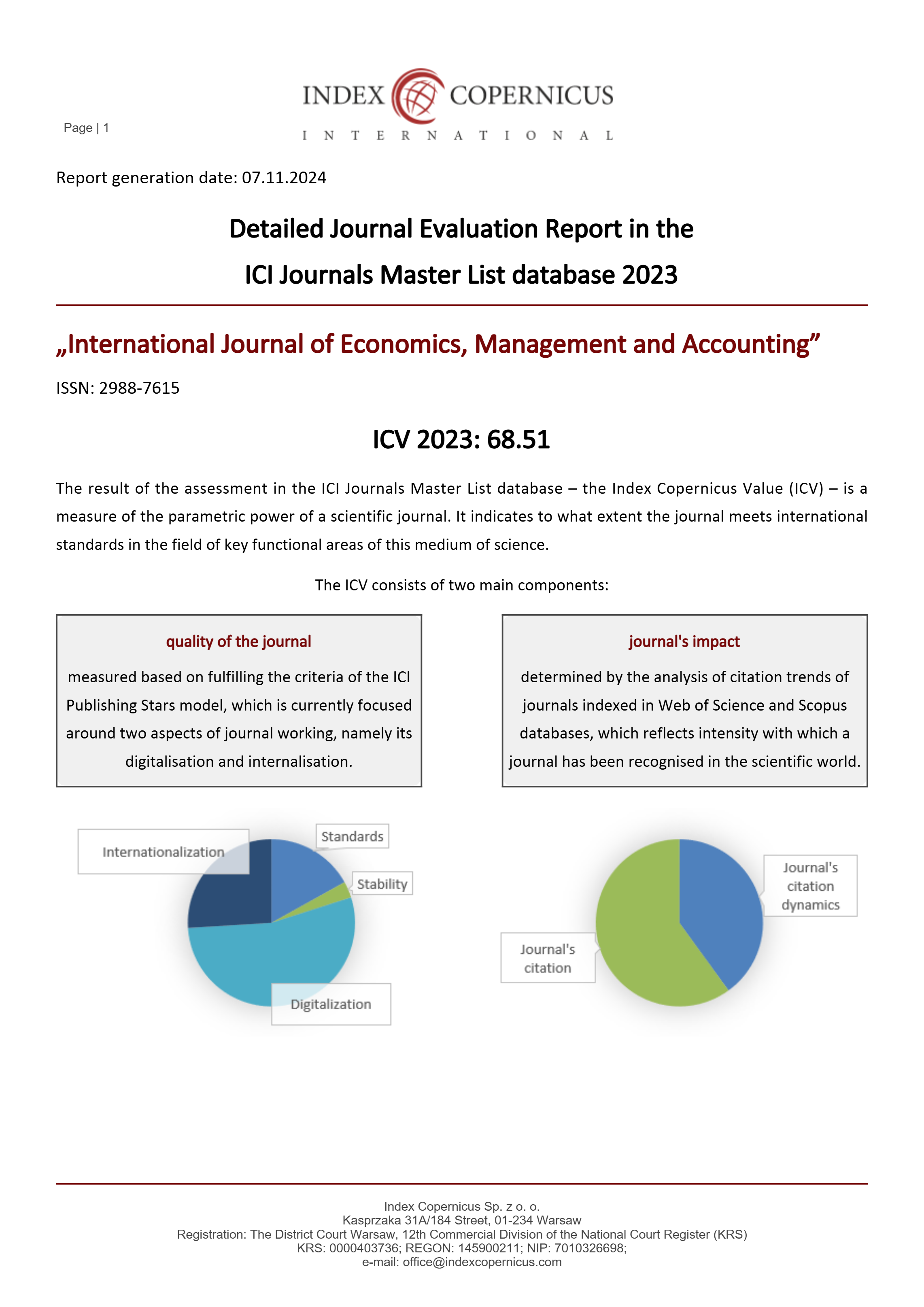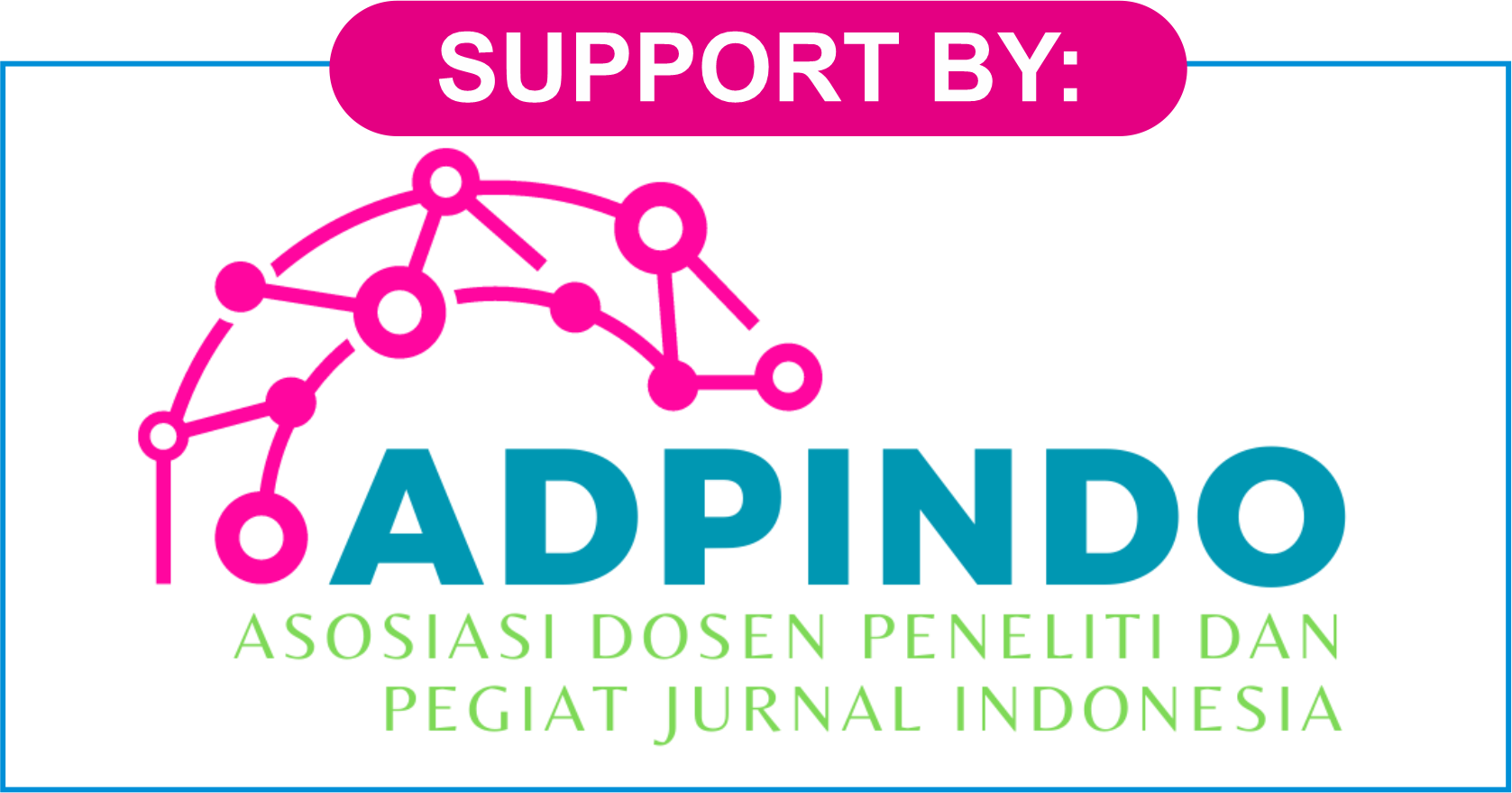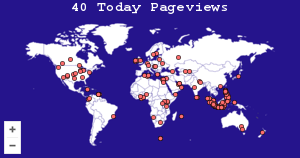Satisfaction as a Strategic Link between the Organizational Environment and Innovation: A Systematic Literature Review in the Context of Modern Organizations
DOI:
https://doi.org/10.47353/ijema.v3i2.325Keywords:
Transformational Leadership, Organizational Commitment, Job Satisfaction, Innovative Behaviors, Systematic Literature ReviewAbstract
This study aims to examine the role of job satisfaction as a mediator in the relationship between the organizational environment—specifically transformational leadership and organizational commitment—and employees' innovative behaviors. Using a systematic literature review (SLR) approach, this study analyzed 20 scientific articles published in the 2015–2024 range. The article selection process follows the PRISMA protocol, starting from the initial identification of 112 articles through the Scopus database, which is then filtered and supplemented with articles from other relevant sources until a total of 20 studies are obtained that are worth analysis. The results of the study show that transformational leadership consistently has a positive effect on innovative behavior and that this influence is significantly mediated by job satisfaction. Organizational commitment was also found to strengthen job satisfaction and indirectly contribute to innovation. However, few studies have placed these two psychological variables—job satisfaction and organizational commitment—in one unified mediation model. This study concludes that job satisfaction is an important strategic link in translating organizational structural influences into innovative behaviors. These findings contribute to the organizational innovation literature by highlighting the importance of the psychological dimension in the process of emerging innovation in the workplace, as well as opening up opportunities for further research in the context of strategic organizations in Indonesia.
Downloads
References
Afsar, B., & Umrani, W. A. (2019). Transformational leadership and innovative work behavior. European Journal of Innovation Management, 23(3), 402–428. https://doi.org/10.1108/EJIM-12-2018-0257
Al-edenat, M. (2018). Reinforcing innovation through transformational leadership: mediating role of job satisfaction. Journal of Organizational Change Management, 31(4), 810–838. https://doi.org/10.1108/JOCM-05-2017-0181
Azriel Yuda Penalemen Tarigan, Ida Bagus Ketut Surya, & I Gusti Made Suwandana. (2024). The Role of Job Satisfaction in Mediating the Influence of Transformational Leadership on Innovative Behavior in Employees of Pt. Xyz. International Journal of Management Research and Economics, 2(3), 380–402. https://doi.org/10.54066/ijmre-itb.v2i3.2091
Basir, A. (2023). The Influence of Transformational Leadership Style, Organizational Climate and Work Discipline on Employee Performance. International Journal of Economics Development Research (IJEDR), 4(3), 1396–1403. https://doi.org/10.37385/ijedr.v5i1.4303
Bin Saeed, B., Afsar, B., Shahjehan, A., & Imad Shah, S. (2019). Does transformational leadership foster innovative work behavior? The roles of psychological empowerment, intrinsic motivation, and creative process engagement. Economic Research-Ekonomska Istrazivanja , 32(1), 254–281. https://doi.org/10.1080/1331677X.2018.1556108
Hilton, S. K., Madilo, W., Awaah, F., & Arkorful, H. (2023). Dimensions of transformational leadership and organizational performance: the mediating effect of job satisfaction. Management Research Review, 46(1), 1–19. https://doi.org/10.1108/MRR-02-2021-0152
Jun, K., & Lee, J. (2023). Transformational Leadership and Followers’ Innovative Behavior: Roles of Commitment to Change and Organizational Support for Creativity. Behavioral Sciences, 13(4). https://doi.org/10.3390/bs13040320
Karimi, S., Ahmadi Malek, F., Yaghoubi Farani, A., & Liobikienė, G. (2023). The Role of Transformational Leadership in Developing Innovative Work Behaviors: The Mediating Role of Employees’ Psychological Capital. Sustainability (Switzerland), 15(2), 1267. https://doi.org/10.3390/su15021267
KAYA, A. (2024). The association between transformational leadership and teachers’ creativity: professional resilience and job satisfaction as mediators. Frontiers in Psychology, 15(1990). https://doi.org/10.3389/fpsyg.2024.1514621
Khalili, A. (2016). Linking transformational leadership, creativity, innovation, and innovation-supportive climate. Management Decision, 54(9), 2277–2293. https://doi.org/10.1108/MD-03-2016-0196
Khan, M. A., Ismail, F. B., Hussain, A., & Alghazali, B. (2020). The interplay of leadership styles, innovative work behavior, organizational culture, and organizational citizenship behavior. Sage Open, 10(1), 2158244019898264. https://doi.org/https://doi.org/10.1177/21582440198982
Messmann, G., Evers, A., & Kreijns, K. (2022). The role of basic psychological needs satisfaction in the relationship between transformational leadership and innovative work behavior. Human Resource Development Quarterly, 33(1), 29–45. https://doi.org/10.1002/hrdq.21451
Putu Yoga Bumi Pradana, I., Saputra, B., B.W. Pandie, D., Salim Adang Djaha, A., Petrus Sayrani, L., & Rijoly, J. C. D. (2024). Harnessing Transformational Leadership to Mitigate Organizational Politics: Enhancing Innovative Work Behavior Through Job Satisfaction in Local Government (Vol. 24, Issue 9, pp. 5–7). https://doi.org/10.2139/ssrn.4992559
Rao Jada, U., Mukhopadhyay, S., & Titiyal, R. (2019). Empowering leadership and innovative work behavior: a moderated mediation examination. Journal of Knowledge Management, 23(5), 915–930. https://doi.org/10.1108/JKM-08-2018-0533
Saif, N., Amelia, Goh, G. G. G., Rubin, A., Shaheen, I., & Murtaza, M. (2024). Influence of transformational leadership on innovative work behavior and task performance of individuals: The mediating role of knowledge sharing. Heliyon, 10(11), e32280. https://doi.org/10.1016/j.heliyon.2024.e32280
Sharif, S., Tongkachok, K., Akbar, M., Iqbal, K., & Lodhi, R. N. (2024). Transformational leadership and innovative work behavior in three-star hotels: mediating role of leader-member exchange, knowledge sharing and voice behavior. VINE Journal of Information and Knowledge Management Systems, 54(1), 1–21. https://doi.org/10.1108/VJIKMS-07-2021-0122
Downloads
Published
How to Cite
Issue
Section
License
Copyright (c) 2025 Abdul Basir, Hamida, Hania Aminah

This work is licensed under a Creative Commons Attribution 4.0 International License.











